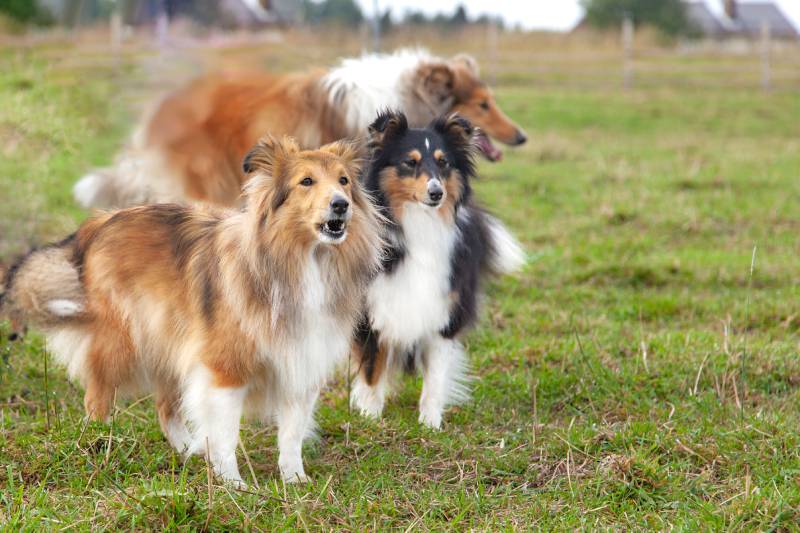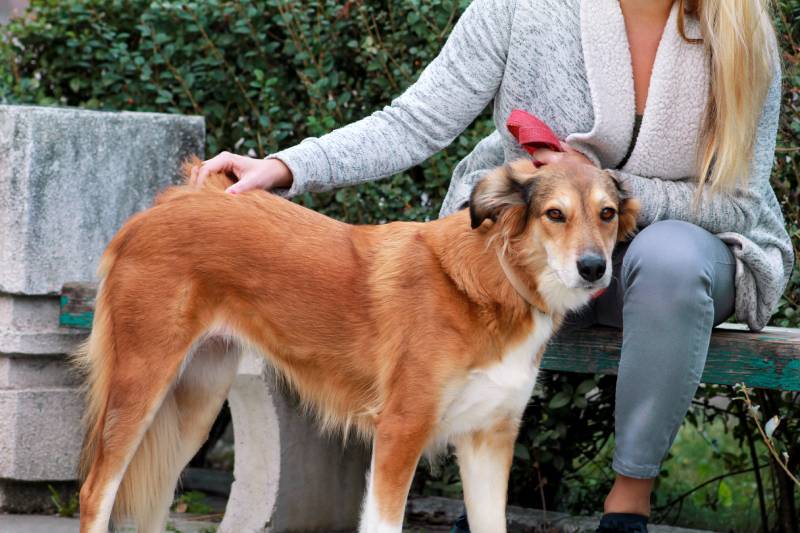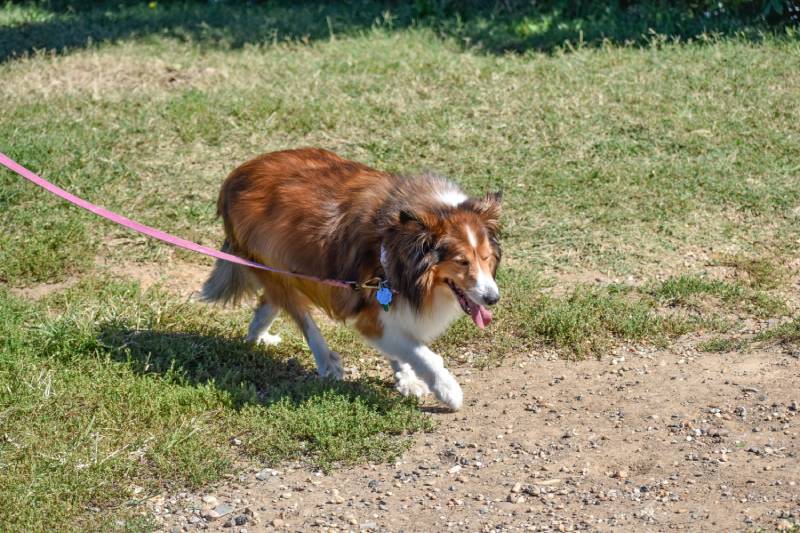Though breed alone doesn’t determine a dog’s personality, different breeds are commonly linked to certain character traits. Being rather vocal is a trait that’s commonly linked with Shelties (Shetland Sheepdogs), and their barks are famously loud and shrill.
Nevertheless, this doesn’t necessarily mean that every Sheltie will be a big barker, especially if you get them into good habits early on—it really depends on the individual dog. In this post, we’ll explore why Shelties are famous for barking and share some tips on preventing nuisance barking.

Why Are Shelties So Vocal?
Shelties were bred to be working farm dogs, spending their days herding a variety of animals, including ones much larger in size than them. Though small, Shelties are very alert, intelligent, spunky, and active, which makes them perfect for working life.
In their roles as farm dogs, Shelties barked while herding. It was also a way of scaring off predators and communicating with their owners to alert them to potential intruders.
The Shelties we know and love today are still considered, generally, to be just as smart, energetic, and alert as their ancestors. They’re also known for often being reserved around strangers. These traits could contribute to them sounding the alert if someone new is heading your way or if they’re suspicious of someone or something.
Furthermore, if the intelligent and active Sheltie is feeling bored and doesn’t get enough mental or physical exercise, they may bark excessively out of frustration. Again, the barking level will differ from dog to dog—some Shelties bark a lot while others, especially those that have learned good barking habits, aren’t very vocal at all.

The 6 Ways to Prevent Excessive Barking
It’s normal for dogs to bark to express a variety of emotions but, if your Sheltie barks excessively, it might be a sign that you might need to work on something that’s bothering them, like stress, separation anxiety, or boredom, or work on patterns of behavior that have been learned.
For example, we can unintentionally teach dogs that barking gets attention, which causes them to repeat the behavior whenever they feel the need. Here are some tips for working on preventing excessive barking in Shelties:
1. Identify the Trigger
The key to helping your Sheltie is to identify what triggers them to bark excessively. Does it happen when your Sheltie is home alone? Then it could be separation anxiety. Or perhaps your Sheltie goes nuts when the doorbell rings or strangers approach. Worse still, maybe your neighbors are annoyed because your Sheltie is barking when out in the backyard. Knowing your Sheltie’s triggers lets you know areas to work on.

2. Desensitize Your Sheltie to Things They Fear
If your Sheltie’s barking is triggered by fear or stress, for example, other dogs, certain noises, or being separated from you while you’re not at home, it’s time to start desensitizing them to whatever it is they’re afraid of, and the steps you’ll take depends on the trigger.
For example, if your Sheltie barks at the sound of a knock on the door, start playing that sound at a low volume and gradually build up the volume until they don’t react. Reward the dog whenever they’re calm. If they bark, lower the volume, and try building up even more gradually.
Another example: your Sheltie hates being left alone and barks every time you try to leave the house. In this case, you could try leaving the room for short periods, rewarding your dog for staying in the other room, and gradually building up the time you leave them alone.
The same goes for when you progress to leaving the house—practice doing it in short bursts first, starting with just a few seconds at a time, and build on that. You can also leave something behind, like a feeder puzzle toy that will take your Sheltie a while to get all the treats out of, to build positive associations around alone time.
3. Avoid Leaving Your Sheltie Alone in the Yard
If your Sheltie is left alone in the yard, they might bark due to boredom or stress. It’s best if you can be on hand to supervise their outdoor time and put your Sheltie inside the house with some stimulating toys if you need to go out. This can help reduce or eliminate the effects of nuisance barking on neighbors.

4. Ignore Barking for Attention
When our dogs bark at us, either for food, play, or attention, our natural reaction is to respond to them. If we do this, it teaches the dog that barking at you gets them what they want, and this isn’t good.
To get your Sheltie to stop this, stop responding to their barking and only reward them when they’re no longer barking. Don’t make eye contact or speak to them in any way. Even a negative response, like telling a dog off, can encourage them to continue barking because they know it gets them some kind of attention.
For example, if your Sheltie is barking because they’re hungry, wait until they stop barking and only then offer food. If they bark because they want you to interact with them, do the same thing—pet or play with them when they stop barking.
5. Make Sure Your Sheltie Gets Plenty of Exercise
A bored Sheltie with too much pent-up energy is sure to behave destructively, and this could include excessive barking. By making sure your Sheltie gets enough physical exercise (walks, games, etc.) and mental stimulation (i.e., scent training exercises, obstacle feeders, other interactive toys, etc.) on a daily basis, you may be able to reduce their barking because an exercised dog is a happier, more relaxed dog.

6. Teach a “Quiet” Command
Take a treat in your hand and trigger your Sheltie to bark, for example, by having someone knock on your door. Go to the door to show your Sheltie that you’ve checked out what they’re trying to alert you to (but make this quick), then show your Sheltie the treat or toy in your hand.
Wait until they’ve stopped barking and give the treat. Every time you do this, build up the length of time your Sheltie has to be quiet to get the treat.
After a bit of practice, start using a verbal cue like “quiet”, making sure your Sheltie can see the treat in your hand. When they stop, give them the treat. This may need to be practiced several times before your dog gets it, but it’s a useful cue to have in your commands toolbox that you can use whenever you need. Avoid using the cue too often, though, as it can lose its effect.
7. Don’t Shout
As frustrating as excessive barking can be, avoid yelling at your Sheltie to pipe down when it happens. This gives your dog some form of attention, even if it’s negative. Dogs tend to respect and respond to calm and firm but kind approaches and positive reinforcement rather than yelling and punishments.

Final Thoughts
While Shelties are known for being vocal dogs, not all are, and it’s important to remember that some barking is completely normal in all dogs—it’s just a form of communication. Barking only becomes a problem when it’s excessive.
There are ways to prevent or reduce excessive barking if it becomes a problem, like desensitizing your dog to triggers and ensuring they get enough exercise among other techniques. Training can take some time to be effective, so be patient. However, if you’ve been trying various methods and nothing is helping your loud Sheltie to calm down, it might be best to recruit the services of a professional trainer.
- Related Read: Do Shelties Like Water (And Can They Swim?)
Featured Image Credit: atiger, Shutterstock
Contents
- Why Are Shelties So Vocal?
- The 6 Ways to Prevent Excessive Barking
- 1. Identify the Trigger
- 2. Desensitize Your Sheltie to Things They Fear
- 3. Avoid Leaving Your Sheltie Alone in the Yard
- 4. Ignore Barking for Attention
- 5. Make Sure Your Sheltie Gets Plenty of Exercise
- 6. Teach a “Quiet” Command
- 7. Don’t Shout
- Final Thoughts









